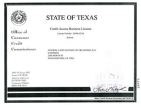How to Choose a Bank
Are you opening your first bank account or changing banks because you’re moving or dissatisfied with your service? Do the different financial institutions and products seem confusing and overwhelming? We’ll break down how to choose a bank that will be best for your situation, so you can evaluate all your options and make the best choice for you. Have no fear, it’s not as hard as it looks!

Bank or Credit Union?
Commercial banks are for-profit institutions that offer services that will maximize profits for shareholders. Online banks are similar, but they have fewer physical locations, employees, and capital expenses, so they’re able to keep their costs and customer fees down. Credit unions are nonprofit organizations owned by their members, so they are sometimes able to offer cost advantages as a result.
Banking Products
Basic products include checking accounts and interest-bearing savings accounts. A checking account allows you to get cash, write checks, and pay with a debit card, and it can accept physical deposits and direct deposits. Savings accounts are designed for deposits, and are less accessible for withdrawing money. Key distinctions include:
- Checking accounts - used for frequent withdrawals and purchases, can be free or fee-based, earn interest or no interest, and typical benefits include free debit card and checks, online banking, and overdraft protection.
- Savings accounts - used for saving for large purchase and emergency funds, different types include standard, money market, and certificates of deposit (CD), and typical benefits include interest earned, government protection, and no high minimum balance requirements.
- Credit cards vs. debit cards - credit cards give you the freedom to pay the bill later and offer more protection from theft and with online purchases, while debit cards withdraw the money immediately and do not offer protection from theft.
Banks also offer mortgages and personal loans, but no title loans or payday loans.
How to Compare Banks
Think about how you’ll be using your bank accounts and what’s important to you. Do you need a physical location nearby or do you make all your transactions online or via your phone? Make a list of questions to research or ask the account representative, like:
- Where are the bank locations and hours? How often will you need to go there?
- Where are the ATM locations? Are there fees for using other ATMs?
- Does the bank provide free online banking for paying bills?
- Can you get direct deposit for your paychecks?
- How does the debit card work?
- Does the checking account have overdraft protection? What are the fees?
- Can you make or receive wire transfers? What are the fees?
- Is there a minimum balance requirement?
- Are there monthly fees for the account and the ATM/debit card?
- Is there a maximum number of transactions each month?
- Does the account earn interest? How much?
